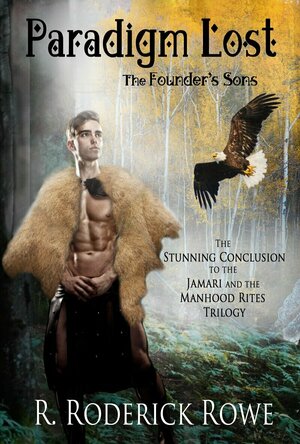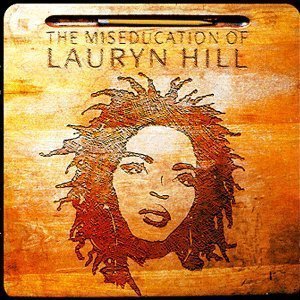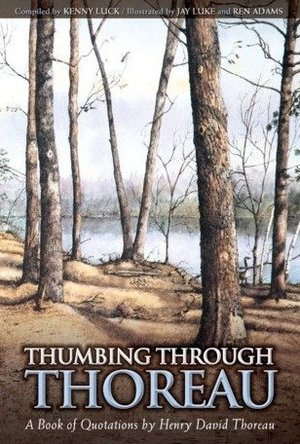Emeli Sande recommended track Tell Him by Lauryn Hill in The Miseducation of Lauryn Hill by Lauryn Hill in Music (curated)

Tarot & Numerology
Lifestyle and Entertainment
App
The ultimate professional Tarot App! Customizable to all needs and tastes with multiple in-depth...
Rachel King (13 KP) rated Thumbing Through Thoreau: A Book of Quotations by Henry David Thoreau in Books
Feb 11, 2019
The book is divided into three sections that each of the quotes could be filed under: "Society & Government", "Spirituality & Nature", and "Love." The quotes that Kenny Luck compiled were indeed thought-provoking. When examining the collection as a whole, I could imagine the kind of man that wrote these words day in and day out. As Luck states: "This book... is my attempt to bring together the best pieces of Thoreau's writings in one collection." Before reading this book, I was not overly familiar with Thoreau's work, and afterwards I realized that the man Thoreau has much in common with my own husband. But I digress.
Some quotes were familiar, such as this one:
"The mass of men lead lives of quiet desperation."
Many more quotes were unfamiliar, but quite profound:
"I am convinced, that if all men were to live as simply as I then did, thieving and robbery would be unknown."
"What is it [to] be born free and equal, and not to live? What is the value of any political freedom, but as a means to moral freedom?"
"A written word is the choicest of relics."
"The day is an epitome of the year. The night is the winter, the morning and evening are the spring and fall, and the noon is the summer."
"I suspect that the child plucks its first flower awith an insight into its beauty and significance which the subsequent botanist never retains."
"To be married at least should be the one poetical act of a man's life."
"Love is a severe critic."
"The only way to speak the truth is to speak lovingly; only the lover's words are heard."
What I found especially distracting was how the words within each quote varied in font size and color, almost as if Luck did not trust the reader enough to know how to read the work and felt he had to dictate to the reader where the emphasis lay in each quote. While I can not say for sure if this was the aim, I felt like my intelligence was being belittled and undervalued as I flipped through the pages. Plus, these words are Thoreau's, not Kenny Luck's, and only Thoreau would be able to truly say where the emphasis within each sentence should be. Luck is only presuming to make intelligent guesses. While I respect Luck's obsession, which he describes in his introduction, I think he should allow for the words of Thoreau to stand alone, so that each reader can appreciate Thoreau through his or her own interpretation.
"The fact is I am a mystic, a transcendentalist, and a natural philosopher to boot."

Moonly
Education, Lifestyle and Reference
App
Full guide of lunar cycles & phases. Daily affirmations. Astrology zodiac charts Live by the moon...
Astrology Moon Moon Phases Lunar Cycle Spirituality
Rachel King (13 KP) rated Redemption in Books
Feb 11, 2019
One of the first things I noticed about the main character of Jane Perry is both her seemingly-abrasive personality, complete with a foul mouth, and her battle with alcoholism. Throughout the book, her strong personality is both her greatest strength and her biggest weakness. Her daily battle to remain sober - pushing six months - is also a prominent theme, complete with AA meetings, sobriety chips, and the 12-step program. I found these details interesting from the educational standpoint, since I have known a few alcoholics, both recovering and not, but nothing about the process of recovery from this horrible addiction.
The woman that hires Jane Perry, Katherine Clark (better known as Kit), is in many ways the very opposite of Jane. A woman in her 60's, she describes her personality as that of an "earth mother". Dealing with stage 4 cancer, she is a strict adherent of New Age philosophies and herbal medicine to treat both her cancer and her particular brand of spirituality. In addition, several of the plot's "bad guys" were followers of a particular sect of Fundamentalist Christianity that Kit spends an overt amount of time condemning, despite her many lectures of tolerance, love, and forgiveness. This in turn incites Jane to regularly mock Fundamentalist Christianity by proxy.
While I realize that radicals of any religion are easy fodder for mainstream literature, the personal beliefs of the author completely overpower the actual plot of the book. It is patently obvious that Dewey is a major supporter of all things New Age, with a penchant for Buddhism, and is completely against a literal translation of the Bible. As I have said in previous reviews, a good author is invisible to the reader, but in this book, the author often felt more present in the plot than the actual characters the book was intended to be about - some sort of amalgamation of Jane and Kit. Despite the good intentions that I am sure Dewey harbors in writing in this fashion, I became rather depressed by the end of the book by the over-saturation of Dewey's agenda of New Ageism versus Christianity, as the book became less and less about the heroics of Jane Perry and more about the beliefs of Laurel Dewey.
While I acknowledge that I do not agree with everything within the particular doctrines of the character of Dr. John Bartosh, I do consider myself a Fundamentalist Christian, a person who believes in both the literal and figurative translation of the Bible. For the author to expect me, the reader, to not even be slightly offended by the condemnation and open mockery of what I consider to be the foundation of my morality and how I live my life on a daily basis is both presumptuous and insensitive.
Despite this, the book was well-written from a literary approach, with unique characters, an unpredictable plot, and no loose ends.

Yodha Love Astrology Horoscope Vs Daily Horoscopes
Lifestyle and Reference
App
Why settle for an ordinary horoscope when you can have access to authentic Vedic astrologers from...

Radio y Podcast iVoox
News and Music
App
With iVoox you can listen, share and download podcasts, radio shows and much more for free, whenever...

PlantSnap Plant Identification
Education and Lifestyle
App
Instantly identify plants, flowers and trees with PlantSnap by Earth.com, the mobile app built to...

Longwalks
Communication, Lifestyle and Social Networking
App
Reflection, empathy, friendship, & fun in one app. ALWAYS makes my day better. DISCOVER YOURSELF...
Lifestyle Social Media Spirituality

Paradigm Lost: Jamari and the Manhood Rites: The Founder's Sons: Part 3
Book
A forest paradise surrounded by lands gutted from corporate greed. The Elk Creek Tribe holds the...
Dystopian Fantasy Futuristic


